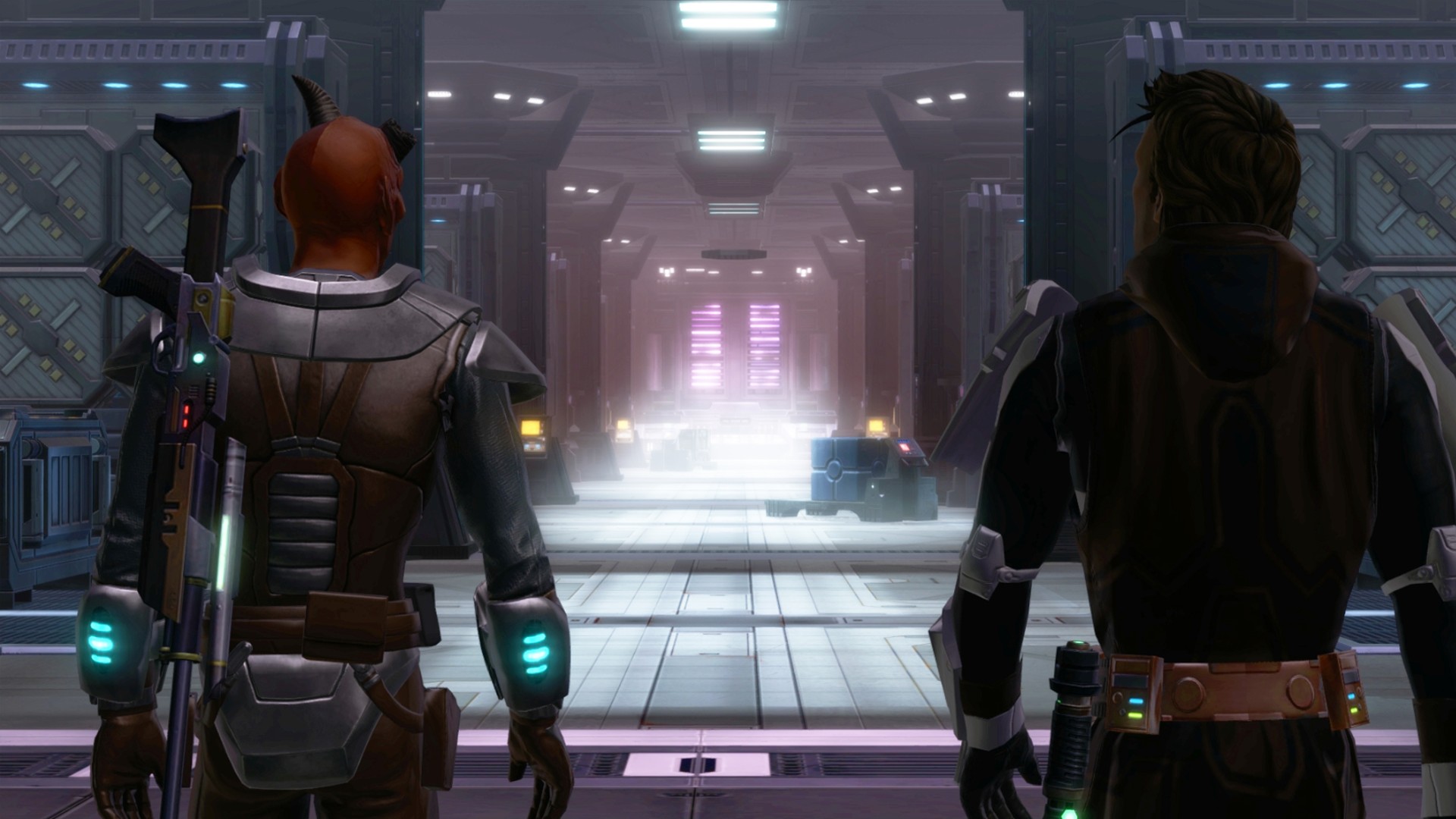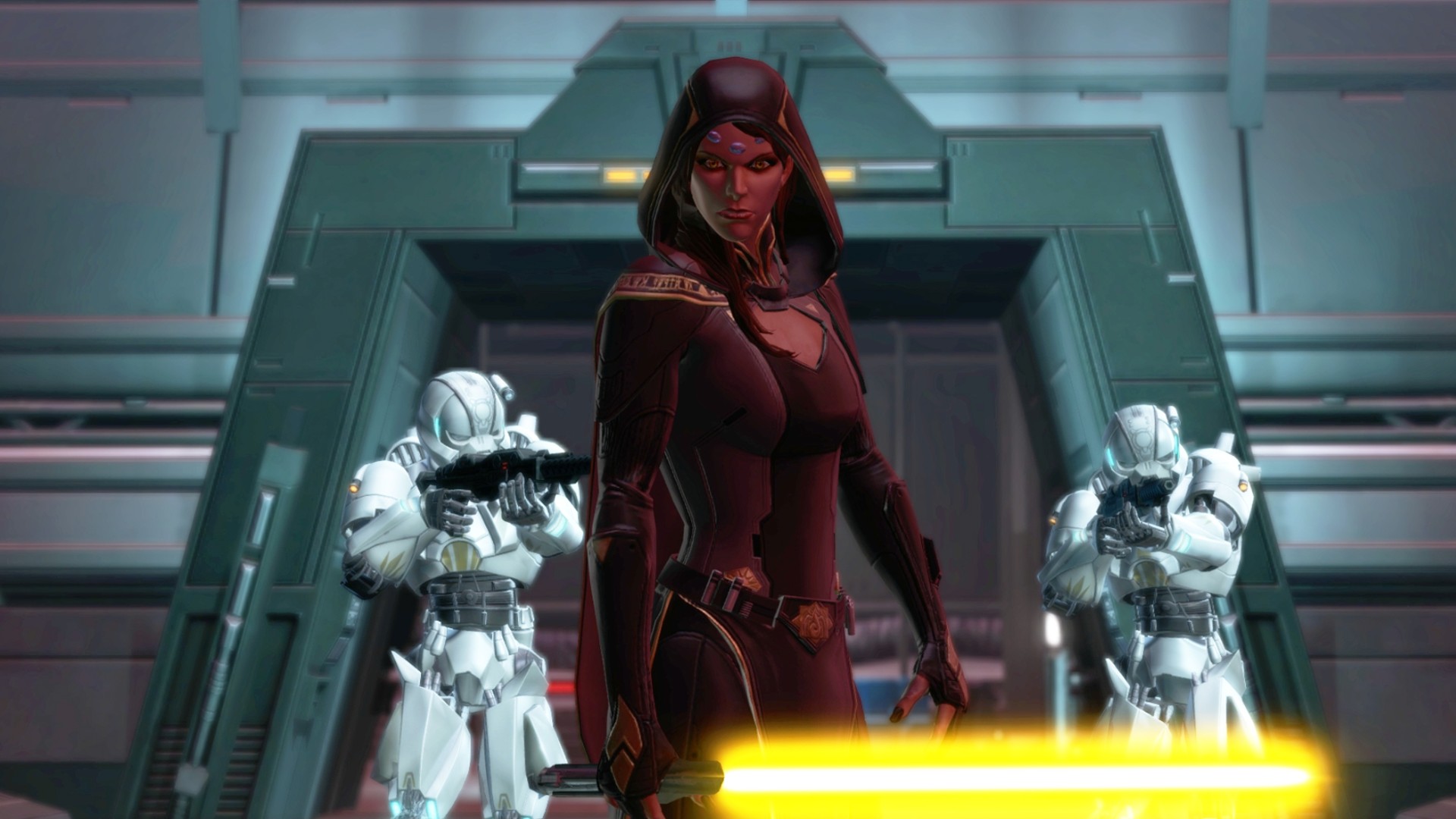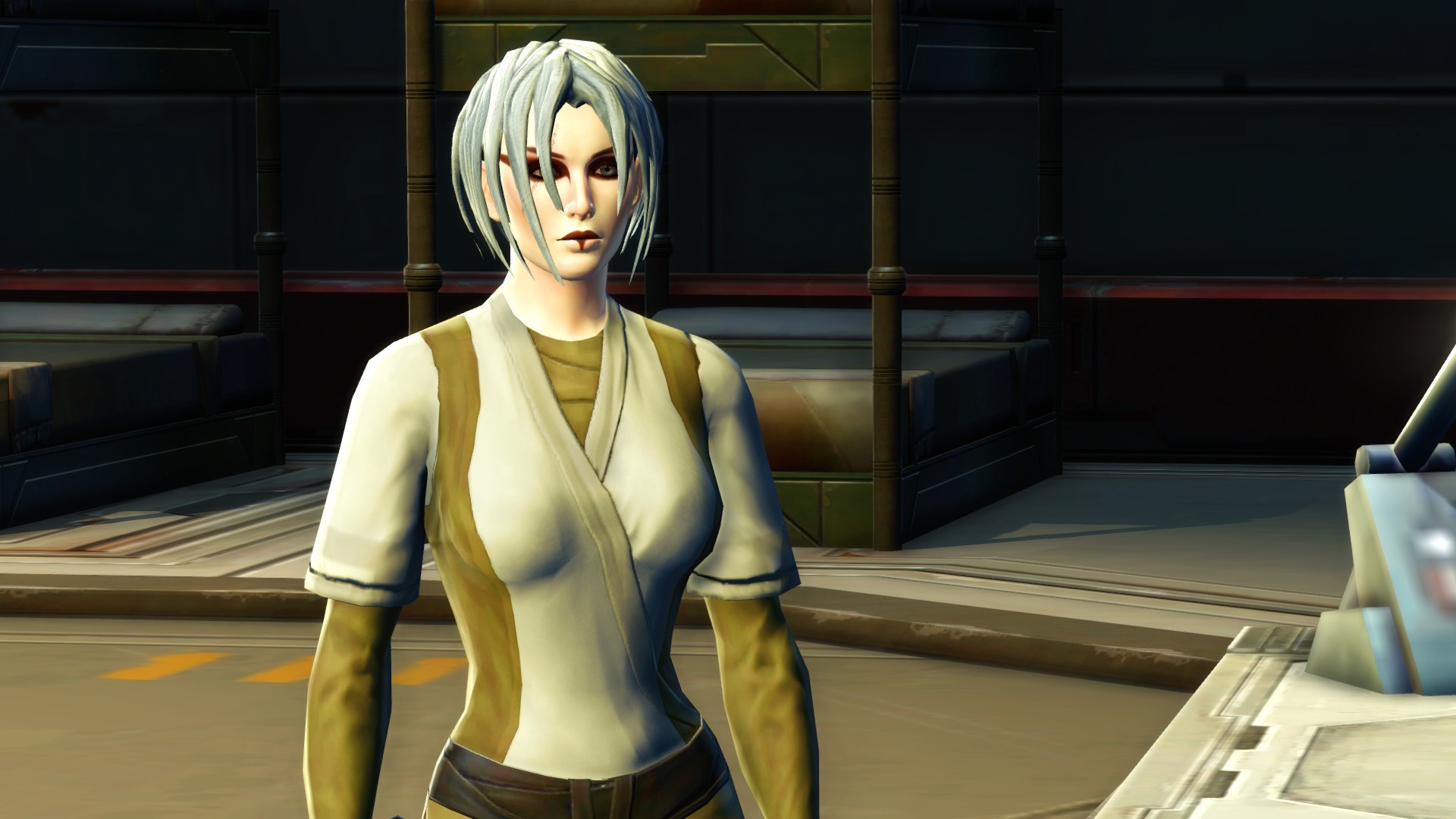BioWare on the art of telling Star Wars stories for a decade
The Star Wars: The Old Republic creative director on canon, Legends, and Legacy of the Sith

Star Wars: The Old Republic has been telling stories set in the Star Wars universe for nearly 10 years. That's a lot of time when you consider how closely guarded and relentlessly policed Star Wars content can be, and it's even more impressive when you consider how The Old Republic has withstood both the test of time and the test of canon.
In 2011, BioWare got the keys to the castle and was given free rein to craft stories thousands of years in the past from the popularized Star Wars tales. But despite its timeline distance from the main Star Wars media, Star Wars: The Old Republic is very familiar to fans of the universe, with Sith planets, Jedi turncoats, and Separatist armies.
When Disney bought Lucasfilm back in 2012, SWTOR was unfazed – because, according to creative director Charles Boyd, BioWare is telling stories that transcend time and the rigid laws of Star Wars canon. These are the kinds of stories a young Luke Skywalker might ask his uncle about over a glass of Bantha milk, featuring characters that might inspire Ben Solo's turn to the dark side. Star Wars: The Old Republic has been given the freedom to create media within the Star Wars Legends universe and that freedom lets BioWare dream bigger and push further. A decade after it debuted, and just a few short weeks before the Legacy of the Sith expansion, I sat down with Charles Boyd over Zoom to understand what kind of world that freedom has created.
Canon fodder

When Disney acquired Lucasfilm in 2012 it erased the Expanded Universe from canon (including Star Wars: The Old Republic) and dubbed the excised content 'Legends'. This rendered a ton of novels, comics, and other forms of media obsolete in the eyes of Star Wars films and Disney Plus TV shows, enraging a certain sect of fans. I ask Boyd if the canon swapping felt like a creative handcuff or an expansion of the team's creative freedom. "Honestly it didn't change how we do anything. We are kind of set in the ancient past of the Star Wars universe to begin with, we were always separated by time, so to me, being a Legend or whatever, I actually think that's awesome," he says. "I still want it to feel like the Star Wars people are used to… it feels like we're telling the stories of the King Arthur of the Star Wars universe. These are the legends that the characters in the Star Wars universe hear about."
"That's another aspect that I love because it's an interactive game, right? The players are defining their characters – who are they, what do they look like, what species are they, what's their skills? And as they go through the story, what choices are they making, are they good or evil, are they really loyal to the Republic or are they scheming against them?" Boyd says excitedly. "Which, to me, really fits the idea of a legend, right? It's like 'oh well I heard King Arthur was the noble hero of all England' but someone else may be like 'No, Arthur was a jerk and Lancelot was the cool one'."
"It feels like we're telling the stories of the King Arthur of the Star Wars universe. These are the legends that the characters in the Star Wars universe hear about"
creative director Charles Boyd
I point out that Star Wars fans tend to universally believe that events and characters are canon unless a major form of media contradicts them. "It's all fiction," laughs Boyd. "Canon and Legends, there were always degrees of 'how hard do we force a creator to follow something that someone else did eight years ago when it was completely different media?' I think [Lucasfilm] has the right direction now – let's focus on making sure the creators are able to create the coolest things they can and then we'll suss out which things tie into that, and we'll always recommend connections where it makes sense. But telling the best stories is always going to be the best route to go, and I feel like that's what they do. We've worked with the same folks at Lucasfilm – many of them, for as long as I've been here, they've been there… they're so supportive and into it even after all these years. Not restrictive at all."
No restrictions in a Star Wars universe means creators can make things as beautiful as the Disney Plus series Star Wars: Visions or as in-depth as the multiple DLC packs Star Wars: The Old Republic has added since 2011. I liken BioWare's freedom to having a little Star Wars sandbox to play in, and Boyd agrees, adding: "Star Wars is great for that. Because it's sci-fi but it's also very fantasy. It's very operatic. It kind of feels like a world where even some of the more outlandish stuff it's like 'well, yeah, that could be happening somewhere.' There are a zillion planets and people from all over having different experiences and different cultures, so it really leaves you open to a lot of that stuff in a way that other things don't necessarily – it's really cool."
Sign up to the GamesRadar+ Newsletter
Weekly digests, tales from the communities you love, and more
SWTOR ten years on

Chatting about the fun that's inherent in telling an unfettered Star Wars story intrigues me enough that I ask Boyd if now is a good time for a new player to try out SWTOR. "It's easier than ever to jump in," he insists. "Whatever Star Wars characters you love, whatever kind of fantasy you want your character to reflect, you'll have more opportunity to do that."
That's because the upcoming Legacy of the Sith expansion is streamlining player classes and other aspects of The Old Republic so that new players can get into the game without being overwhelmed. "Variety and choice are expected in an RPG MMO, but it's easier than ever to jump into that," Boyd explains. "In the past, the way your character fought in the game and the weapons they used was very specific to their class and their storyline. With this update and Combat Styles, we're actually separating those a bit more so that each storyline can pick from a lot more options for gameplay and weapons than they were able to."
Boyd references Captain Rex from Star Wars: The Clone Wars, pointing out that the commando can dual wield pistols with this update when he wasn't able to before. "It's a great time to come in, because whatever Star Wars characters you love, whatever fantasy you want your character to reflect, you'll have a lot more opportunity to do that," he reassures me. Surprising nobody, I downloaded SWTOR the second our call drew to a close.
I create a lady bounty hunter named Neyra Sol with white hair and a wicked scar over her right eye and end up on Ord Mantell, a planet I'm very familiar with thanks to Star Wars: The Bad Batch. SWTOR certainly looks like a game that came out in 2011, but the plinky Star Wars music and in-depth RPG elements get me hooked rather quickly – and that's without the streamlined Legacy of the Sith expansion elements.
Star Wars: The Old Republic launched with much fanfare nearly ten years ago to the day and has a steadily active player count to this day, with around 10,000 peak players each month. That number should rise again with the upcoming expansion, especially if my experience inspires any other Star Wars fans to check it out. Star Wars: The Old Republic has given us fresh Star Wars stories for a decade, and Boyd is "definitely up for 10 more." Watch this space. Get it?
Where does SWTOR fall on our best MMORPG list?
Alyssa Mercante is an editor and features writer at GamesRadar based out of Brooklyn, NY. Prior to entering the industry, she got her Masters's degree in Modern and Contemporary Literature at Newcastle University with a dissertation focusing on contemporary indie games. She spends most of her time playing competitive shooters and in-depth RPGs and was recently on a PAX Panel about the best bars in video games. In her spare time Alyssa rescues cats, practices her Italian, and plays soccer.



